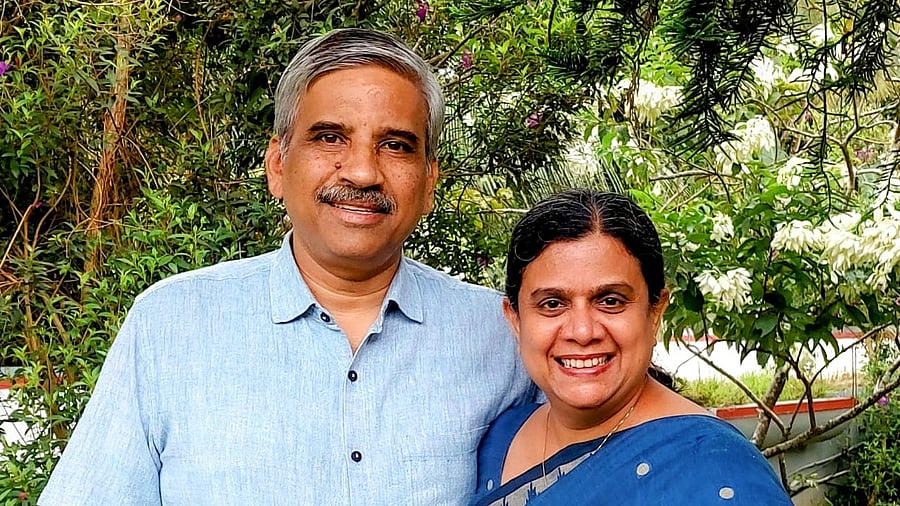
WHO modifies TB treatment guidelines after pathbreaking research by Mangaluru doctor couple
Credit: Special arrangement
New Delhi: Research on tuberculosis by a doctor couple from Mangaluru has contributed majorly to the World Health Organisation modifying its guidelines on treating TB, giving significant emphasis on food and nutritional support of the family members of TB patients in order to prevent new infections.
Two years ago Anurag and Madhavi Bhargava from Kasturba Medical College and Yenepoya Medical College respectively published results of an Indian Council of Medical Research-supported trial that for the first time showed how providing food support to household contacts of TB patients reduces the chances of new TB cases by nearly half while food and nutrition support to the TB patients greatly improves their chances of survival.
Earlier this week, when the WHO released its new consolidated guidelines on tuberculosis and undernutrition, it included “provision of food assistance to prevent TB in household contacts of people with TB in food insecure settings” as one of the key new additions.
“The new recommendation was informed by the findings from the Reducing Activation of Tuberculosis by Improvement of Nutritional Status (RATIONS) trial,” the UN body said. The guideline referred to five studies carried out by the Bhargavas in partnership with other researchers.
The team demonstrated how a monthly food basket containing 5 kg rice and 1.5 kg lentils per adult along with multi-vitamin tablets could decrease new cases of contagious pulmonary tuberculosis by 48% among the family members of a TB patient. The study was conducted on about 2,800 patients and their 10,000 plus family members in four districts of Jharkhand.
"The risk of TB in family members is much higher due to the shared environment of poverty and food insecurity. So a family-based approach is promising not just for patient outcomes of treatment success and reduced deaths in the short term, but also in reducing overall TB burden in the long term," Madhavi told DH.
Following the trial, Jharkhand, Tamil Nadu and Himachal Pradesh governments have begun giving away food baskets to the households of TB patients while the Union government too enhanced its monetary support so that they can access better food and nutrition.
India has the world’s highest TB burden with an estimated 28 lakh plus new cases and over 320,000 deaths in 2023. This means 37 Indians die every hour due to TB, as per official data. In Karnataka, TB kills nearly 5,000 people each year.
“Malnutrition is the major risk factor for TB in India,” said Anurag, noting that improving nutrition in the general population could be a game changer in the fight to end TB.
Another key finding of their trial was how availability of improved food can bring down mortality in TB patients by 35%, and how weight gain in the first two months of receiving food reduces the risk of TB mortality by 60%.
Subsequent modeling studies showed providing food baskets to at least 50% of families having a TB patient across India could prevent nearly 400,000 deaths and 900,000 episodes of tuberculosis between 2023 and 2035.
“It was a trial that generated evidence from field observations rather than from a hospital or laboratory. It encouraging that the results, because of their relevance, have been incorporated within two years in medical textbooks and WHO guidelines,” he added.
